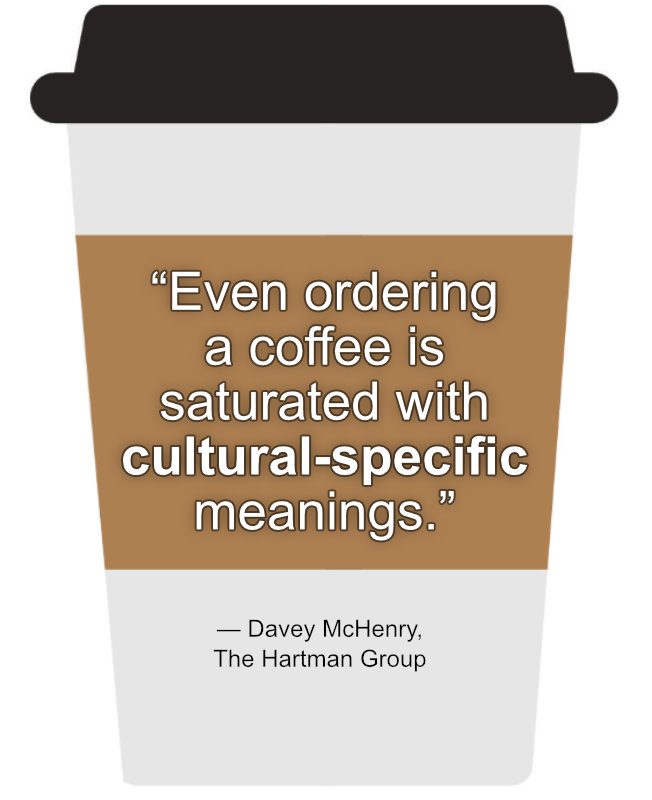Two trends transforming the food industry

MIAMI — Personalized wellness and conscious consumption are two of the biggest trends affecting the food and beverage marketplace over the next few years, said Davey McHenry, vice-president of Consulting Services at The Hartman Group.
Technology has elevated the importance of customization in American food culture, giving rise to an empowered consumer, Ms. McHenry said during The Hartman Group's Food Culture Forecast 2018 summit on April 19 in Miami.
“Personalizing is in our DNA,” she said. “Even ordering a coffee is saturated with cultural-specific meanings.”
 Food is an expression of one’s identity, beliefs and desires, as well as a tool for managing wellness. Many consumers are experimenting with various diet and lifestyle approaches to achieve optimal mental and physical health.
Food is an expression of one’s identity, beliefs and desires, as well as a tool for managing wellness. Many consumers are experimenting with various diet and lifestyle approaches to achieve optimal mental and physical health.
“Consumers are beginning to believe in the uniqueness of individual’s bodies and minds,” Ms. McHenry said. “Advice is just that. It’s advice, until I’ve been able to try it and see what works for me.”
In the future, mindful consumers may dig deeper in exploring food’s role in the areas of gut and brain health, stress and sleep quality and personalized nutrition, Ms. McHenry said.
“This overarching trend toward mindfulness that we see in health and wellness has enabled consumers to ask meaningful questions about the origins of food,” she said. “What’s in it? ... How was it made? ... Who made it? ... What we’re seeing more and more is there is another layer that is coming into consideration, which is, how was it grown?”
Consumers are becoming concerned about soil health and its impact on nutrients in food. The issues of pollution and waste also are gaining importance in consumers’ minds and purchasing decisions.

“A willingness to investigate combined with the ease of doing so means Gen Z will likely value transparency even more,” Ms. McHenry said. “Nine in 10 consumers globally rate ingredient transparency as important or very important for companies to address.”
To adapt to the trends of personalized wellness and conscious consumption, businesses must be nimble, innovative and strategic, Ms. McHenry said.
“The rate of change in the food industry is messier and accelerating faster than ever before,” she said. “To be successful, companies have to be able to anticipate and adapt to this new world order... Perhaps the business model you use to measure success no longer works because it’s not business as usual.”
There is no one-size-fits-all solution, she added.
“What is that thing that is going to help you carve out that niche in the marketplace and continue to be relevant to consumers in the future?” — Davey McHenry, The Hartman Group
“Your pathway to growth is dependent on your unique circumstances,” she said. “It’s about your brand, your customer and your competitive environment. It’s about figuring out which of these trends will be the most impactful or the most threatening to your business and focusing on that.
“You can’t be everything to everyone. You can’t tackle everything. So what is that thing that is going to help you carve out that niche in the marketplace and continue to be relevant to consumers in the future?”
No comments:
Post a Comment